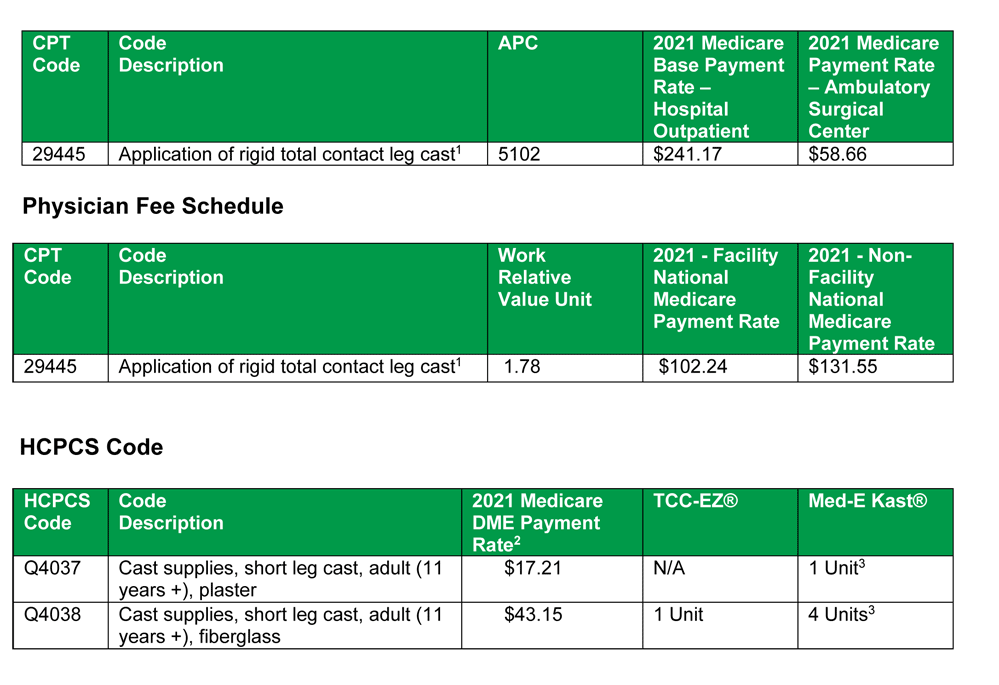Few things in life are more complicated than medical reimbursements, we believe this (table below) to be accurate for TCC based on how current clients are billing. Also this is from SuperCoder on debridement:
As per NCCI edits total contact cast application (29445) cannot be billed separately from a debridement (97597) when treating the same ulceration/same anatomical location for medicare as of above scenario. However, Commercial payers may consider separate payment with appropriate modifier.
Also from SuperCoder on CPT codes for debridement:
CPT code 97602 can be used for removal of devitalized tissue from wounds when non selective debridement (chemical method, hydrogen peroxide, iodine, Pulsed lavage method etc.) method is performed.
CPT codes from wound debridement series (11042 – 11047) can be used if active debridement is performed with surgical instruments (forceps and scissors to remove infected or dead tissue material from the wound). Here code selection depends on the depth of the tissue removed e.g. for debridement up to level of subcutaneous tissue – CPT code 11042 is the correct CPT code.
This from medicarepaymentandreimbursement.com on reimbursement fees:
11042-Debridement, subcutaneous tissue (includes epidermis and dermis, if performed); first 20 square cm or less. – average fee payment- $120 – $130
From Integra Life Sciences:

- Coding/Billing Notes:
According to the National Correct Coding Initiative (CCI) Policy Manual for Medicare Services (Revision
Date: 01/01/2017), casting/splinting/strapping should not be reported separately if a restorative treatment
or procedure to stabilize or protect a fracture, injury, or dislocation and/or afford comfort to the patient is
also performed. Several examples follow: (1) If a provider injects an anesthetic agent into a peripheral
nerve or branch (CPT code 64450), the provider should not report CPT codes such as 29515, 29540, or
29580 for that anatomic area; (2) A provider should not report a casting/splinting/strapping CPT code for
the same site as an injection or aspiration (e.g., CPT codes 20526-20615); (3) Debridement CPT codes
(e.g., 11042-11047, 97597) and grafting CPT codes (e.g., 15040-15776) should not be reported with a
casting/splinting/strapping CPT code (e.g., 29445, 29580, 29581) for the same anatomic area. - If the cast is supplied by the physician in his/her office, the physician may bill the Medicare for the
application of the cast as well as the supply of wrap itself, not the actual boot, during instances where just
an application of TCC is occurring and the physician is enrolled in Medicare as a licensed DME Supplier.
Reference: CPT® Code Book 2021. Current Procedural Terminology (CPT) copyright 2020 American
Medical Association (AMA). All rights reserved. CPT is a registered trademark of the AMA. Fee
Schedules, relative value units, conversion factors and/or related components are not assigned by the
AMA, are not part of CPT, and the AMA is not recommending their use. The AMA does not directly or
indirectly practice medicine or dispense medical services. The AMA assumes no liability for data
contained or not contained herein.